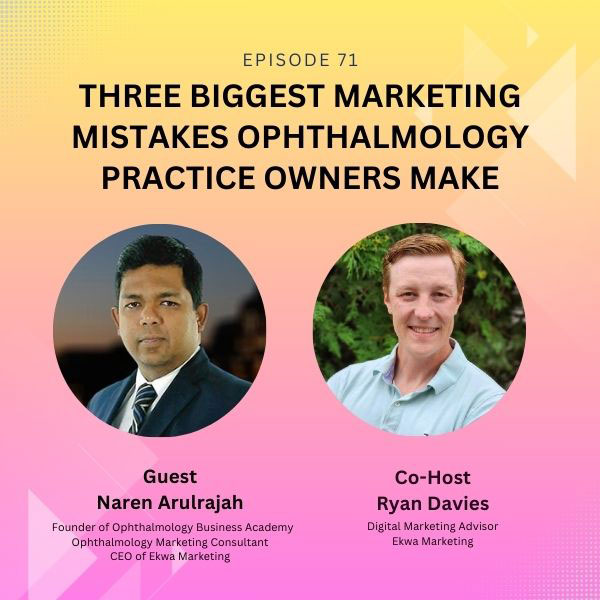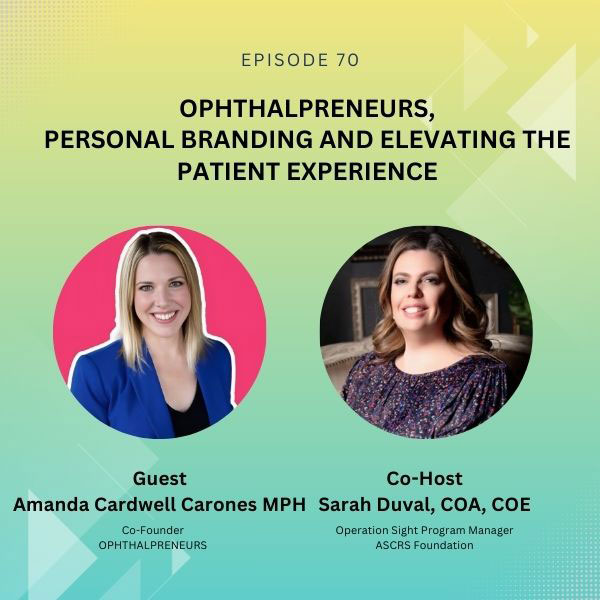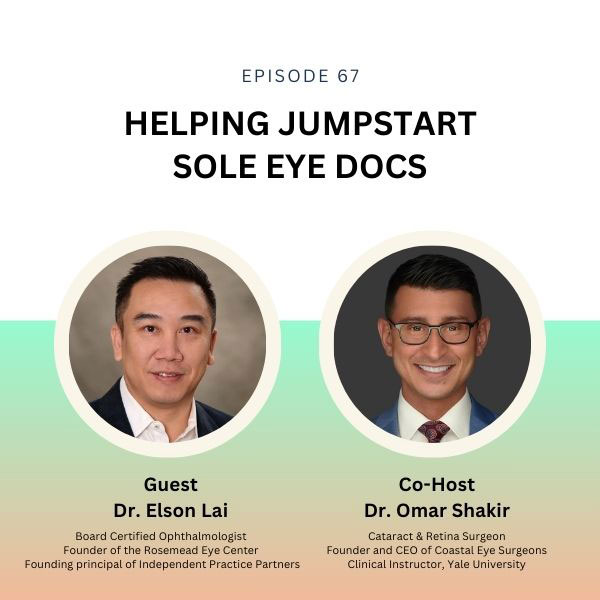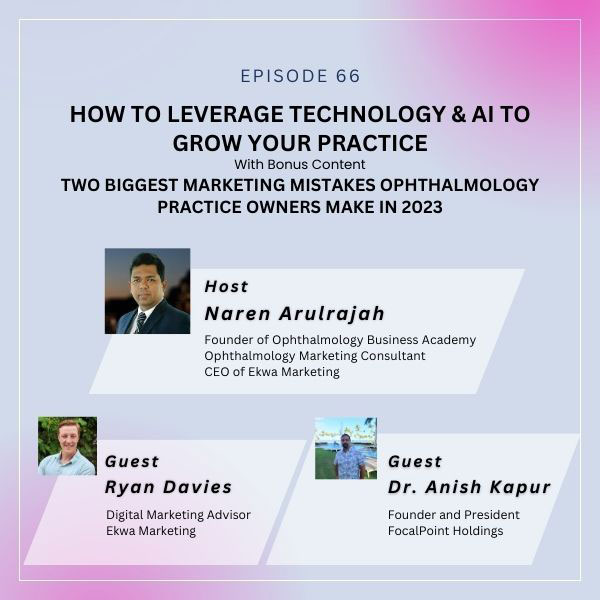The importance of co-management in ophthalmology has been further accentuated by recent lawsuits, making it a critical topic for discussion. In this episode, Dr. Dana Ondrias, CEO of Mann Eye Institute, explores the essential aspects of co-management and how it can ensure patient-centered care. She discusses the legal implications and ethical considerations surrounding co-management practices, emphasizing transparency, patient choice, and compliance with healthcare regulations. This podcast episode serves as a platform to address concerns, share best practices, and navigate the complexities of co-management to ensure patient-centered care while safeguarding the interests of all participants involved.
P.S.: This podcast episode was originally conducted as a webinar, and the host shared slides with the audience during the session. We have now made these shared slides available as snippets on our podcast page at https://www.obacademy.org/podcast-show/. You can find these valuable resources on our website and the timestamps for easy reference during the podcast episode.
Podcast: Play in new window | Download
Timestamps
- 00:01:08 – Dr. Ondrias’s journey in optometry
- 00:03:00 – What is co-management, and why does it exist?
- Co-management is a patient care tool designed to benefit the patient’s continuity of care.
- It should be arranged on a patient-by-patient basis
- 00:05:08 – Why is it such a hot topic today? Why should we be talking about it right now?
- Healthcare fraud is a widespread issue across various fields
- Recent lawsuits and complaints, often raised by former employees of healthcare practices, have brought co-management practices into the spotlight.
- 00:10:13 – Difference between Anti-Kickback Statute and Stark Law
- 00:13:15 – Difference between direct referral and co-management
- 00:14:36 – The way that you can do co-management correctly
- Importance of ensuring that patients are fully informed about the nature of the co-management relationship
- How to appropriately obtain a patient’s consent
- 00:16:38 – Co-management consent compliance form
- 00:19:08 – What do’s and don’ts should ophthalmology and optometry practices consider when handling payments in co-management arrangements?
- The main “don’t” in co-management payment is for the surgeon not to pay the co-managing doctor.
- Healthcare providers have options for handling payments in co-management, such as collecting fees directly from the patient or utilizing compliant programs
- 00:24:10 – Does the timing of when the ophthalmologist sends the patient back to the co-managing optometrist impact the fees collected in the co-management process?
- Co-management fees billed through Medicare or commercial insurance are limited to the first 90 days of post-operative care.
- 00:31:20 – Is it ever okay for an optometrist to bill insurance during the global period?
- 00:34:56 – How should optometrists respond to offers of perks or gifts from industry representatives, considering recent settlements raising concerns about such practices?
- 00:37:26 – In a lawsuit or claim for fraudulent practices in co-management arrangements, who bears liability for any wrongdoing discovered during the investigation?
- 00:42:09 – Summary points
- Communication is the key with the patient
- Doing your research and asking questions is always good
- 00:44:40 – Q & A session
- Is it within compliance guidelines to work with more than one ophthalmology practice and co-managing care?
- Are ophthalmology practices allowed to have optometrists sign a contract to co-manage care with them?
- If I choose not to use Co-fi, what is the best way to handle the payment process with patients?
- How involved is your staff with handling payments for patients? Either through Co-Fi or not Co-Fi?
- What is the code used for the fee for premium lenses?
About

Dana Ondrias, OD
Chief Executive Officer
Mann Eye Institute
Dr. Dana Ondrias, a Texas-licensed optometrist, is Mann Eye Institute’s Refractive Center Director. She brings with her a wealth of knowledge and experience in primary eye care and laser vision correction obtained during her professional career.
Dr. Ondrias became interested in eye care while working in a prestigious optometry practice during high school. After graduating as Valedictorian, she attended Texas Tech University, then went on to receive a Bachelor of Science at the University of Houston. She gained early acceptance to the University of Houston School of Optometry and earned a Doctor of Optometry in 1996. She completed an externship at Mann-Berkeley Eye Center gaining extensive experience with LASIK pre- and post-operative patient care. Dr. Ondrias has worked and trained with some of North America’s premier refractive surgeons. She has been the Executive and Clinical Director for the largest provider of laser vision correction in the United States and Canada. During her tenure there she personally managed over 10,000 PRK and LASIK procedures.
Dr. Ondrias is a member of the American Optometric Association and Texas Optometric Association. She lectures regularly on the varied technological and clinical aspects of laser vision correction. She has also served on many committees, locally and nationally, to promote the relations between optometrists and ophthalmologists and in the development of clinical strategies in refractive practices. As a leader in the laser vision correction field, she has served as an investigator for many clinical trials including Custom LASIK treatments.
Connect with Dr. Ondrias
LinkedIn: linkedin.com/in/dana-ondrias-0648159
Resources












